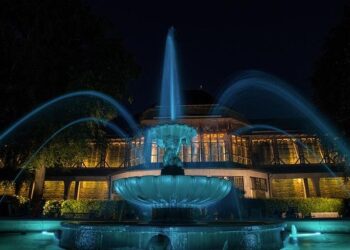Albania’s recent parliamentary elections were described as competitive and well-administered by international observers, yet concerns were raised over the absence of a fully level playing field, according to a report released by the Organization for Security and Co-operation in Europe (OSCE). While the voting process itself met many democratic standards, the observers highlighted issues such as uneven campaign conditions and media imbalance that undermined the overall fairness of the poll. The assessment underscores ongoing challenges in Albania’s democratic development as the country seeks closer integration with the European Union.
Parliamentary Elections in Albania Marked by Competition and Professional Administration
The recent parliamentary elections in Albania showcased a vibrant political landscape defined by intense competition among parties and candidates. Election administration was widely praised for its professionalism, with electoral commissions implementing transparent procedures and ensuring accessibility for voters across the country. Observers noted the efficient management of polling stations and the overall smooth conduct of the voting process, which contributed to a credible expression of the electorate’s will. Technical preparations, including the deployment of well-trained staff and the use of effective voter identification methods, minimized disruptions and delays.
However, international observers, including those from the OSCE, highlighted that despite the positive logistical aspects, concerns remained regarding the fairness of the electoral environment. Key issues identified included unequal media coverage, instances of misuse of administrative resources, and persistent political polarization. These factors contributed to an uneven footing for participants, ultimately undermining some core democratic principles. Below is a summary of both strengths and challenges as reported by monitors:
- Strengths: Transparent vote count, professional conduct, widespread voter access
- Challenges: Media bias, administrative resource misuse, partisan tensions
| Aspect | Evaluation |
|---|---|
| Electoral Commission | Well-organized and neutral |
| Media Coverage | Biased towards incumbents |
| Voter Turnout | Moderate with regional variations |
| Political Climate | Highly polarized |
International Observers Highlight Imbalances Undermining Electoral Fairness
International observers commended the overall management of Albania’s recent parliamentary elections, noting the professionalism of election officials and the smooth conduct at polling stations. Despite these positive elements, concerns were raised about significant disparities that compromised the integrity of the competitive process. Key issues included uneven media access for political parties and candidates, which limited the information voters could receive from diverse sources. Additionally, the campaign environment was marked by instances of pressure on voters and candidates, creating an uneven playing field ahead of election day.
Several critical imbalances were identified:
- Media Coverage: Dominance of ruling party visibility contrasted with limited airtime for opposition groups.
- Resource Allocation: Unequal distribution of public funds and campaign materials favored incumbents.
- Voter Influence: Reports of intimidation tactics and vote-buying attempted to sway electoral outcomes.
| Observed Issue | Impact on Fairness |
|---|---|
| Media Bias | Restricted voter choice |
| Unequal Funding | Hindered opposition campaigns |
| Voter Pressure | Eroded free expression |
Recommendations Emphasize Enhancing Media Freedom and Electoral Transparency
International observers highlighted the critical need to bolster media independence and ensure equal access to information for all political actors in Albania’s electoral landscape. Persistent biases in media coverage and instances of undue influence undermined the plurality essential for a genuinely competitive environment. To address these concerns, key recommendations focus on:
- Guaranteeing fair and non-partisan coverage across public and private media outlets;
- Enhancing transparency in media ownership and funding structures;
- Protecting journalists from pressure, intimidation, and harassment;
- Implementing stronger regulatory oversight to prevent manipulation and disinformation.
Electoral transparency also remains a significant area for improvement. Observers noted that while the election process was generally well administered, the absence of a fully level playing field was evident in candidate registration processes, financial disclosures, and the monitoring of campaign activities. Recommended measures include:
| Focus Area | Key Recommendation |
|---|---|
| Candidate Registration | Ensure transparent and consistent application of registration rules |
| Campaign Financing | Introduce strict oversight and mandatory public reporting |
| Election Monitoring | Expand independent domestic observer missions with unhindered access |
| Complaint Mechanisms | Strengthen impartial adjudication to address electoral disputes swiftly |
Concluding Remarks
In sum, while Albania’s recent parliamentary elections were praised by international observers for being competitive and administered efficiently, concerns remain over the uneven playing field that shaped the campaign environment. The OSCE underscored the need for further reforms to ensure genuinely fair competition in future electoral processes. As Albania continues its Euro-Atlantic integration ambitions, addressing these challenges will be crucial to strengthening democratic institutions and public trust in the country’s political system.
















